192 Square Feet: Part 2
This is part two in a series. The first outlined the first seven months of building and living in a 192 square foot house that would be the first of several tiny structures on a property in Missouri.
My first seven months in the cabin felt a bit like camping and they were fantastic! As I went into my first winter I had the essentials: a warm, dry tiny cabin with electricity and wood heat. I did not yet have running water but I did have a sink that drained. For water I filled three 5 gallon tanks at our well 150 feet from my cabin. Most modern-day citizens of the U.S. wouldn’t want to do that for long as we’ve been raised with indoor plumbing which delivers fresh water out of a faucet. I welcomed the experience because I knew it was temporary and because I knew it was giving me a bit of perspective.
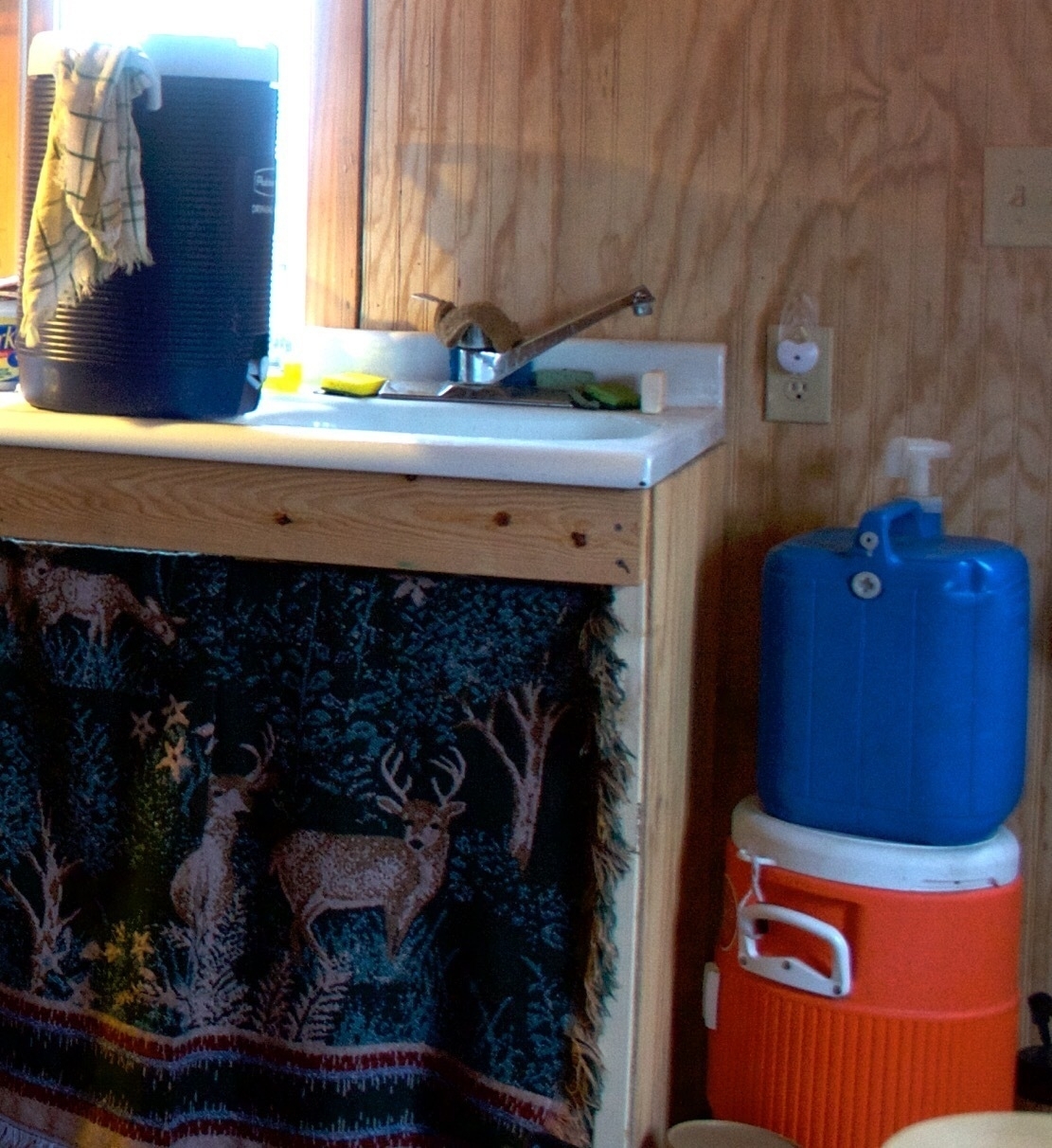 There are still some in the U.S. without indoor plumbing, mostly on Indian reservations and in rural areas. According to this story by the Washington Post the number, as of 2014, was 1.6 million Americans. According to a WHO/UNICEF 2010 report “3.8 billion people, or 57 per cent of the world’s population, get their drinking water from a piped connection that provides running water in their homes or compound.” If I needed to live for a year or so without water coming into my home I might get just a brief taste of what many others live without not by choice but by circumstance. But there’s more. Many of those that do not have a water line into their home also don’t have the convenience of a private, powered well with clean source of water just 150 feet away. I considered myself very fortunate.
There are still some in the U.S. without indoor plumbing, mostly on Indian reservations and in rural areas. According to this story by the Washington Post the number, as of 2014, was 1.6 million Americans. According to a WHO/UNICEF 2010 report “3.8 billion people, or 57 per cent of the world’s population, get their drinking water from a piped connection that provides running water in their homes or compound.” If I needed to live for a year or so without water coming into my home I might get just a brief taste of what many others live without not by choice but by circumstance. But there’s more. Many of those that do not have a water line into their home also don’t have the convenience of a private, powered well with clean source of water just 150 feet away. I considered myself very fortunate.
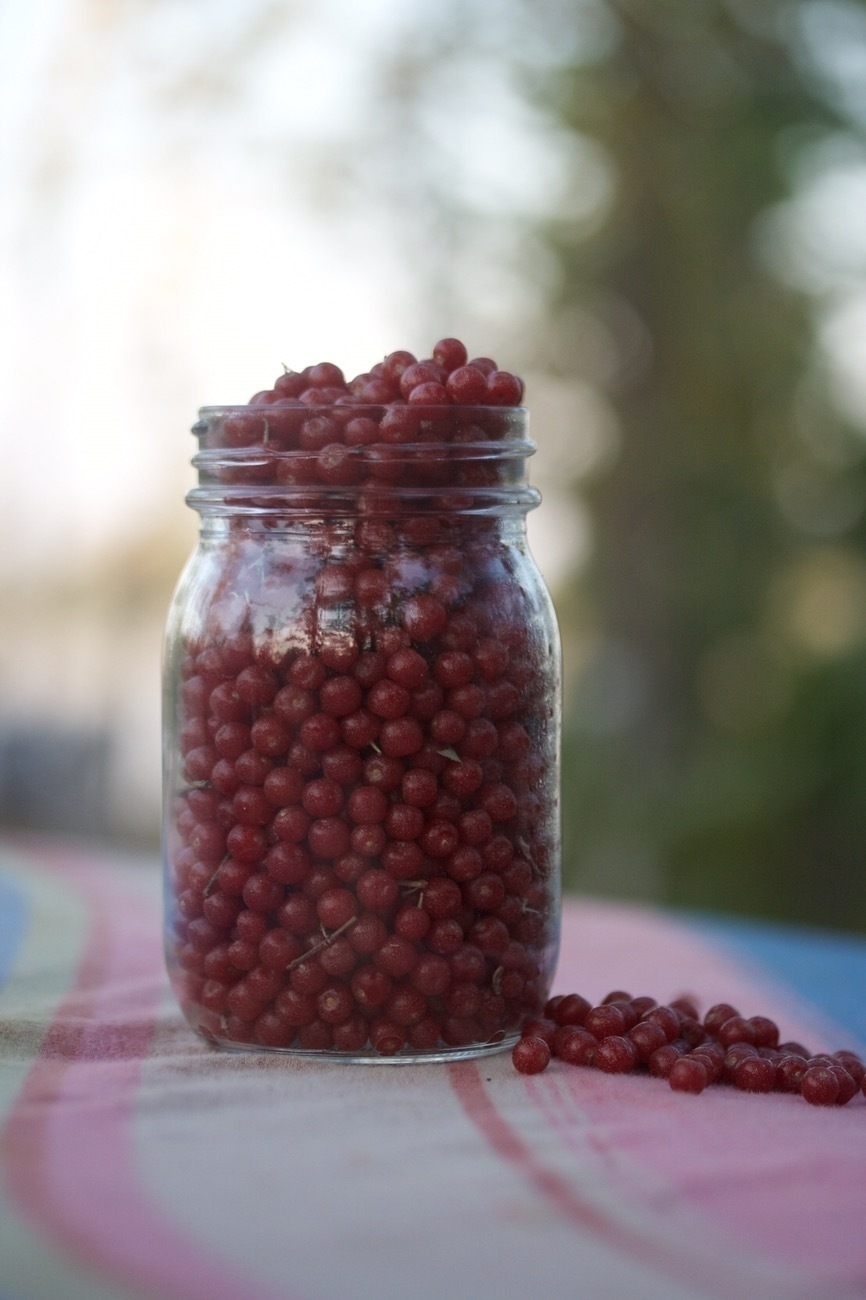 In October and November I put the garden to bed with planted garlic bulbs and lots of mulch all over. Mostly I used cardboard and straw. I mulched over paths as well as beds and areas of grass that were to be expanded garden beds in the spring. An unlooked for but happily discovered fall crop was the Autumn Olive! We have many of them in the area and the bushes not only smell wonderful in the spring but bear huge amounts of tiny red fruit that are not only edible but a real treat once fully ripe!
In October and November I put the garden to bed with planted garlic bulbs and lots of mulch all over. Mostly I used cardboard and straw. I mulched over paths as well as beds and areas of grass that were to be expanded garden beds in the spring. An unlooked for but happily discovered fall crop was the Autumn Olive! We have many of them in the area and the bushes not only smell wonderful in the spring but bear huge amounts of tiny red fruit that are not only edible but a real treat once fully ripe!
 Heating with wood that first winter worked pretty well but in a small space even a smallish woodstove can be difficult for full time heating. What I discovered was that it was very easy to waste wood because it was very easy to heat the cabin too much. With so little thermal mass the cabin would heat quickly and cool quickly. I would put a couple logs in at the start of the day and every couple of hours add another log or two. If I was very careful I could moderate it but the slightest miscalculation meant the cabin was suddenly 85 or 90 at which point I could suffer through it so as to not waste the heat or I could open a window or take a walk, either way I was “wasting” the heat and wood. At bedtime I would put a log or two in and know that I would need to get up in two or three hours to put in more. If it wasn’t too cold I could let the fire go out and start fresh in the morning. I woke up many days to my inside thermometer reading between 45 and 55. Certainly tolerable but not very cozy. This would be an issue I would have to deal with in the future.
Heating with wood that first winter worked pretty well but in a small space even a smallish woodstove can be difficult for full time heating. What I discovered was that it was very easy to waste wood because it was very easy to heat the cabin too much. With so little thermal mass the cabin would heat quickly and cool quickly. I would put a couple logs in at the start of the day and every couple of hours add another log or two. If I was very careful I could moderate it but the slightest miscalculation meant the cabin was suddenly 85 or 90 at which point I could suffer through it so as to not waste the heat or I could open a window or take a walk, either way I was “wasting” the heat and wood. At bedtime I would put a log or two in and know that I would need to get up in two or three hours to put in more. If it wasn’t too cold I could let the fire go out and start fresh in the morning. I woke up many days to my inside thermometer reading between 45 and 55. Certainly tolerable but not very cozy. This would be an issue I would have to deal with in the future.
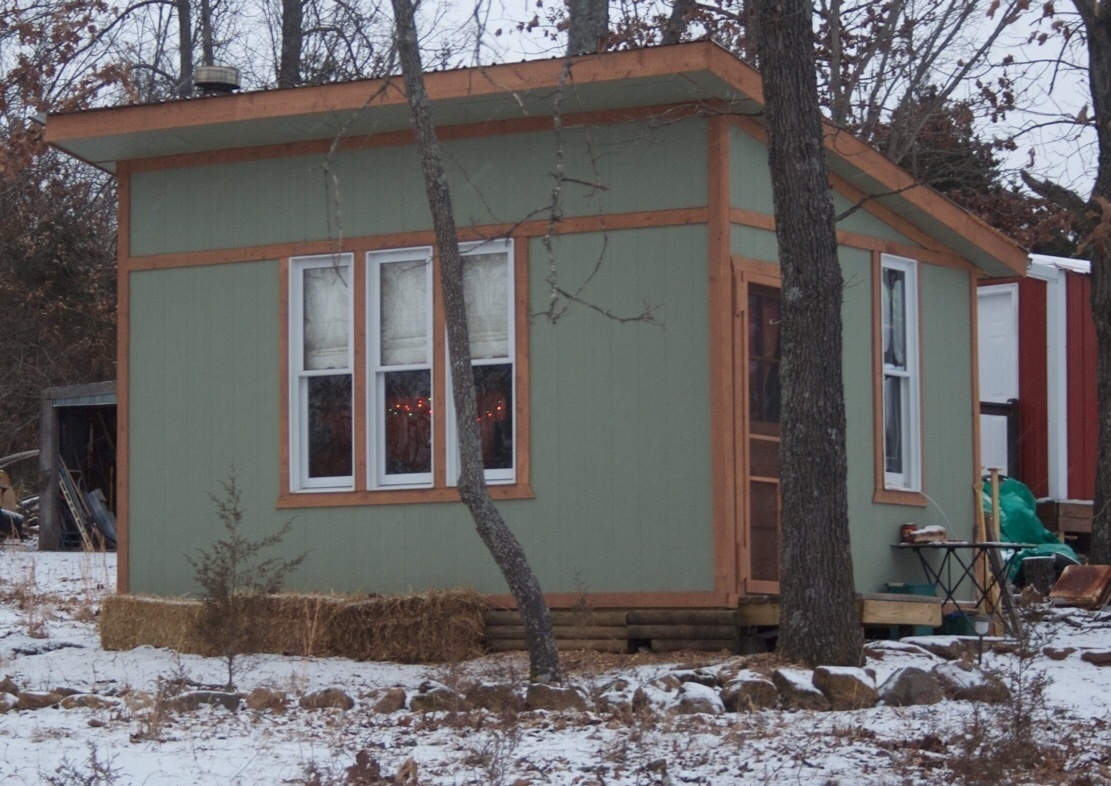 That first winter I also experienced the joy of uninsulated floors! Cold. Too late to do much about it I put down some carpeting and wore slippers. Future plans would include reducing airflow under the cabin as well as increased layers of carpeting. I did come up with a quick fix to slow the airflow on the west side of the cabin which included some salvaged garden timbers already assembled to the right height supplemented by a few bales of hay. The west side was the most vulnerable not only because it had the greatest gap but also because the greatest incoming wind, often over a frozen lake, was from the west. My cabin takes the full force as there aren’t that many trees on that side and those that are there are, of course, without leaves in the winter!
That first winter I also experienced the joy of uninsulated floors! Cold. Too late to do much about it I put down some carpeting and wore slippers. Future plans would include reducing airflow under the cabin as well as increased layers of carpeting. I did come up with a quick fix to slow the airflow on the west side of the cabin which included some salvaged garden timbers already assembled to the right height supplemented by a few bales of hay. The west side was the most vulnerable not only because it had the greatest gap but also because the greatest incoming wind, often over a frozen lake, was from the west. My cabin takes the full force as there aren’t that many trees on that side and those that are there are, of course, without leaves in the winter!
I also learned the importance of monitoring our little well shed. When temperatures dipped to 0 my heating was not nearly enough and the pipes froze. Never again. The key is “heat tape” and a combination of heat lights and/or a heater of some sort. Minimizing the waste of energy also means paying attention to the weather. When the weather warms the heat goes off but of course it is essential to stay on top of things. As soon as temps dip down into the 20s the protective heat has to go right back on.
[caption id=“attachment_877” align=“aligncenter” width=“866”]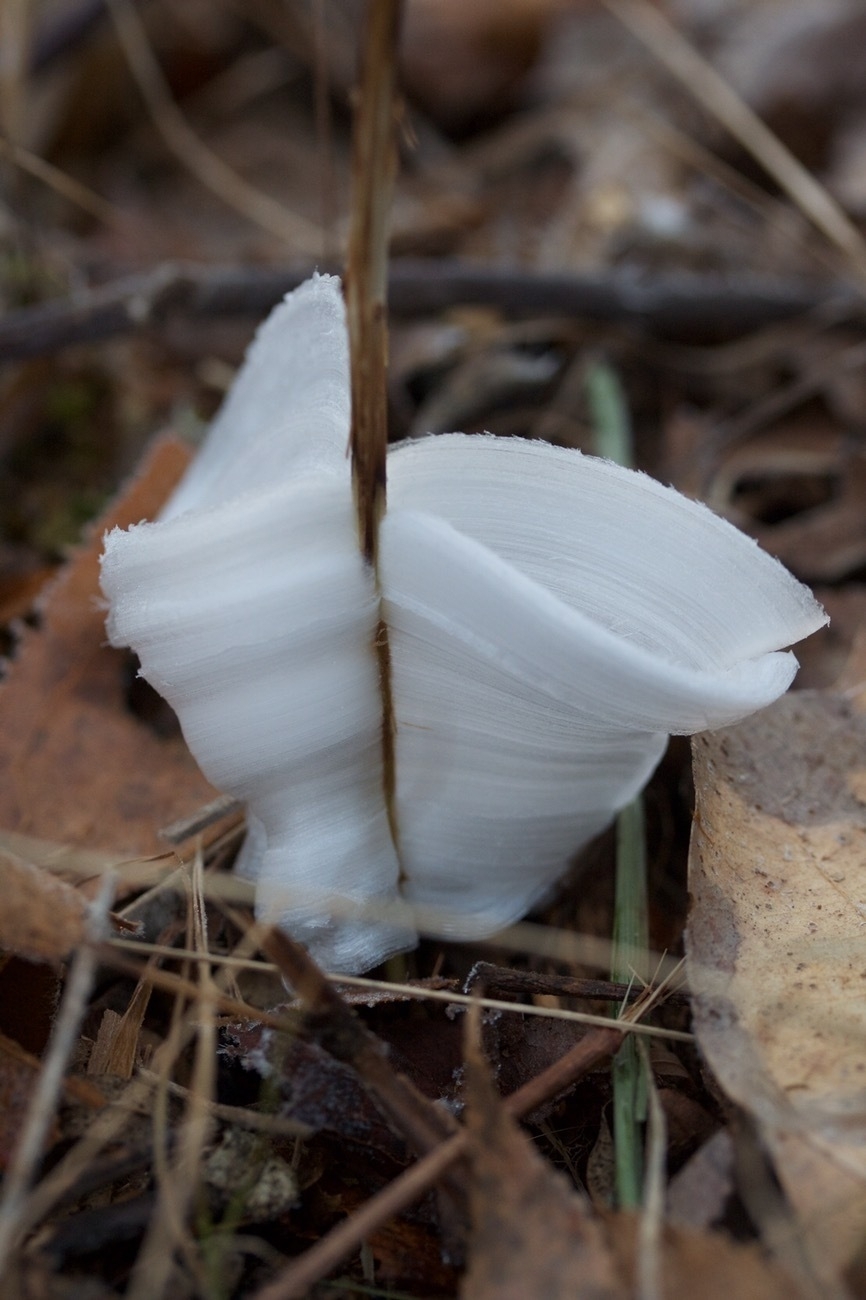 Ice funnels that form when moisture in grass freezes and expands outward.[/caption]
Ice funnels that form when moisture in grass freezes and expands outward.[/caption]
But it wasn’t just cold feet I had to get used to. I’d become comfortable using the outhouse during the warmer months. Using an outhouse at 0° is an altogether different experience! Brrrrrrrr. But as with the carrying of water I viewed it as a learning experience and an expansion of my personal perspective. Funny thing really, I got used to it. Not to say it wasn’t cold each time but it just became a part of life. Yes, it was cold but I survived just fine. Truth is it’s probably pretty funny for anyone within earshot of those first moments of my ass meeting toilet seat as my yelping could probably be heard for several hundred feet. Sorta like someone jumping into cold water. I always have a chuckle at myself in those moments.
One of the benefits of the outhouse, summer or winter, spring or fall, was the sense of connection with the outdoors. In an interesting way using an outhouse or just peeing outside reminds one that in the end we are also animals. Yet another benefit is the usage of “wastes” for the enrichment of soil. Eventually the poop is composted and can be safely used for fruit trees. The urine is great for adding nitrogen to compost. What goes in comes out and it’s best to put it to good use.
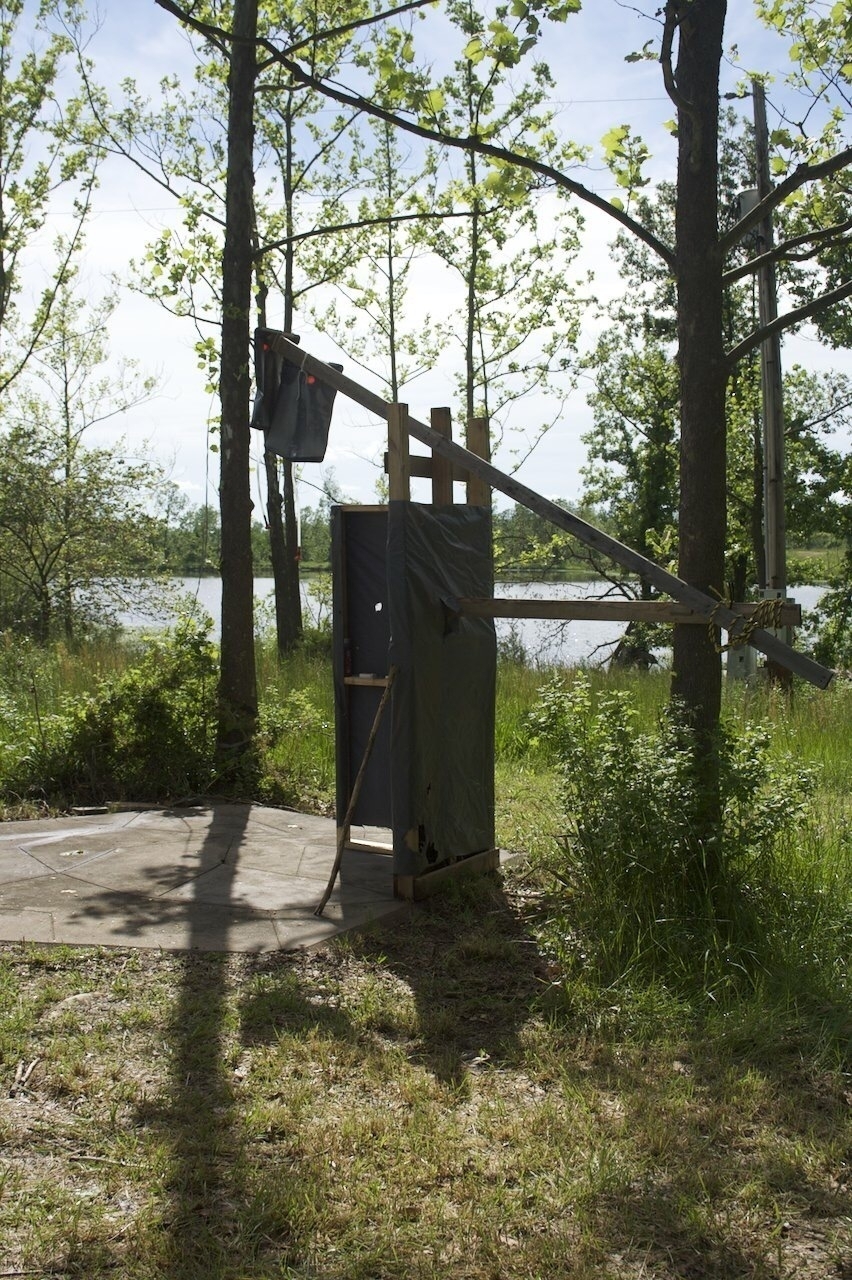 You may remember that I also did not have an inside shower. I used the outside solar shower until it got cold. I used the shower in Kerry and Greg’s cabin until they turned their water off for the winter. That was probably late November. Now, this is where some of you get grossed out and where I get to share my thoughts on modern bathing habits. You see, for me, this wasn’t a huge problem. And yes, I hear you snicker, but what about the people around me? Might my stink not be a problem for them? Oh, I see a rabbit hole, let’s jump in!
You may remember that I also did not have an inside shower. I used the outside solar shower until it got cold. I used the shower in Kerry and Greg’s cabin until they turned their water off for the winter. That was probably late November. Now, this is where some of you get grossed out and where I get to share my thoughts on modern bathing habits. You see, for me, this wasn’t a huge problem. And yes, I hear you snicker, but what about the people around me? Might my stink not be a problem for them? Oh, I see a rabbit hole, let’s jump in!
Modern humans of the “developed” world are far too concerned with being “clean”. We’ve got antibacterial soaps and wipes. Women are convinced that they must shave or otherwise remove much of their body hair. So as to limit our body odor we use deodorants and anti-perspirants. Some people shower daily. I’ve known some that shower twice a day regardless of whether they break a sweat during the day. What are we so afraid of? My disdain for too much cleanliness is not just opinion. Oh no, I’ve got science too. Well, to be specific I have preliminary science because as is often the case, science is tentative.
Ever heard of the “hygiene hypothesis”? In short the idea is that we have become too clean. In our war against “germs” we have greatly reduced the helpful bacteria on which we depend. The contention is that we have become more susceptible to asthma and autoimmune problems because we have reduced our body’s exposure to “germs” which it uses to program the immune system. This is especially important for children who’s bodies are most in need of the “programming”. Not only that but our gut and skin biomes have been greatly reduced. Again, these are necessary bacteria (and fungi and archaea) with which we have a symbiotic relationship. We_ need them to survive._ We call this aggregate of microorganisms the human microbiota. Get used to it, your “body” is actually a community with non-human cells outnumbering human cells by 3 to 1. Fantastic!
For a more academic read there is this. There’s a great deal to be said on the subject and I don’t want to go too far down this rabbit hole. For now I’ll conclude by suggesting that I am clean enough. I found ways that first winter to clean-up without a shower. And for the record, while I wouldn’t want to use an anti-perspirant I am happy to use deodorants. Interestingly I’ve been told by family and a few close friends that I have a unique Denny smell. They contend that it’s not a bad body odor but just a unique smell. I’m guessing that for most of human history each person had such a personal odor. It’s only in recent times that we’ve sought to so completely remove it’s traces.
Okay, now that we’ve covered that I’ll bring the tale of the first year to a close. I not only survived the winter but I thoroughly enjoyed it, frozen feet, icey butt cheeks and all. Spring was around the corner and I would soon be very busy with the garden. Tomato and other warm season crops were seed planted in trays and cool season crops such as peas and lettuce were direct seeded into the garden. The plan for the spring included a chicken coop and attached greenhouse as well as a new cabin for Kerry and Greg’s kids. Oh, and honey bees! Lots to do. More to come!